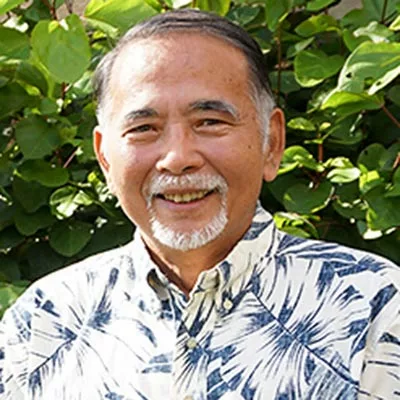Telecommunications and Social Informatics Program (TASI) / Pacific Health Informatics Data Center (PHIDC)
TASI/PHIDC conducts interdisciplinary and applied research and provides policy, program, technical assistance, education, and training in Hawai‘i and the Pacific Islands Region related to:
- Accessible and affordable Information and Communication Technology (ICT)
- Health Information Technology (HIT)
- Electronic Health Record (EHR)
- Healthcare and claims data management, analytics, and programs
- Telehealth
- Meteorological and disaster communications
In collaboration with the School of Communications, TASI/PHIDC offers a Telecommunications and Information Resource Management (TIRM) Graduate Certificate Program. The TIRM GCP consists of five graduate courses that focus on telecommunications policy, planning, technology systems, services and management with emphasis on health information technology and analytics.
PHIDC Team
PHIDC programs incorporate an interdisciplinary approach to education and research, and work with partners from across the University of Hawaiʻi system, State of Hawaiʻi and other government and academic institutions from the Asia and Pacific Islands region. The PHIDC team includes university faculty and researchers in health economics, health systems and policy, quantitative research, and biostatistics. Key faculty include Victoria Fan ScD, Assistant Professor, Office of Public Health Studies and Yan Yan Wu, PhD, Assistant Professor, Biostatistics/Epidemiology, Office of Public Health Studies. PHIDC’s technical and data management team has experience in health data, database development and management, data extraction, transport/transformation and aggregation, and network security and privacy.
Director Dr. Norman H. Okamura leads the technical architecture design and the health data analytic teams. He is the former Administrator of the State of Hawaiʻi Information and Communication Services Division of the Department of Budget and Finance, a founder of the Telecommunications and Information Resource Management (TIRM) Graduate Certificate Program, and together with Christina Higa, manages policy, program, and planning technical assistance projects in Hawaiʻi and the Pacific Islands region related to health information technology, information and communication technologies, telehealth, and meteorological and disaster communications.
Projects and Initiatives
TASI/PHIDC has long been a leader in providing telecommunications, health information technology, social informatics, telehealth, weather forecasting, and disaster management throughout the Pacific Basin. As examples, TASI/PHIDC: provides data cleansing, storage, and analytics for the State of Hawai‘i All-Payer Claims Database; developed a claims data warehouse and decision support system with the Commonwealth of the Northern Mariana Islands (CNMI) Medicaid program; collaborates with CNMI and Guam on several Medicaid projects involving data management and analytics, State Level Registries and Electronic Health Records. Details of select projects follow.
Hawaiʻi All-Payer Claims Database
PHIDC is designated as the data center for the Hawaiʻi All-Payer Claims Database (APCD) by the State Health Planning and Development Agency (SHPDA). This collaboration with the Department of Health (DOH), Office of Enterprise Services (ETS), and Medicaid (Med-QUEST) aims to inform consumers and policymakers of the health and healthcare system of Hawaiʻi. APCDs have been established by 20 states to address national and local healthcare challenges such as the rise in healthcare cost, population health, quality of care and access to care.
Pacific Collaboration and Intergovernmental Agreements
The program builds on a significant portfolio of projects and expertise within the region and has several intergovernmental cooperative agreements with agencies in Hawai‘i and the Pacific Islands for health information technology and social informatics research initiatives.
Health Information Technology
TASI/PHIDC partners with and provides Technical Assistance (TA) to the health systems and Medicaid programs in the Pacific Island territories. Some of the TA projects include:
- Development of State Medicaid Health Information Technology (HIT) Plans for the Commonwealth of the Northern Mariana Islands (CNMI) and American Samoa approved by the Centers for Medicare and Medicaid Services (CMS) in accordance with the Health Information Technology for Economic and Clinical Health (HITECH) Act.
- Implementation of State Level Registry (SLR) for the Medicaid Electronic Health Record (EHR) Incentive Program. These systems documents and initiates payments for EHR incentives for Medicaid providers.
- Planning with the CNMI Medicaid program a Claims Data Warehouse to improve the use of Medicaid claims data to analyze the health care costs, health conditions, service utilization of the Medicaid population.
- Implementation of the Resource and Patient Management System (RPMS) Electronic Health Record system of the Indian Health Service (IHS) of the U.S. Department of Health and Human Services (DHHS) in the CNMI Commonwealth Healthcare Corporation (CHCC) and the Guam Community Health Centers (CHCs), including electronic billing, inpatient, ambulatory and ancillary laboratory and pharmacy services, and Surescripts electronic prescribing (eRX) server.
- Technical Support for the Medicaid Innovation Accelerator Program (IAP) for Data Analytics provided by the CMS Center for Medicaid and CHIP Services (CMCS) and the Center for Medicare & Medicaid Innovation (CMMI) to assist territories of the Commonwealth of the Northern Marina Islands and Guam to improve health and health care of Medicaid beneficiaries through improvements in data management and analytics.
- Healthcare Analytics and the use of the open source “R” statistical software for the Guam Community Center of the Guam Department of Public Health and Social Services (DPHSS).
- Assessments of Public Health Information Systems for the CNMI CHCC and Guam DPHSS.
- Development of a State Innovation Model (SIM) Plan for the Commonwealth of the Northern Marianas Islands to improve healthcare and population health in chronic diseases with focus on diabetes.
Pacific Basin Telehealth Resource Center (PBTRC) is funded through a Cooperative Agreement with the Office for the Advancement of Telehealth (OAT), Health Resources and Services Administration (HRSA). PBTRC is one of 14 Telehealth Resource Centers (TRCs) that represent a consortium of telehealth experts in the country with an aim to assist in expanding the availability of health care to underserved populations. PBTRC provides technical assistance and program support for Hawaiʻi and Pacific Basin communities to advance the development, implementation, and integration of telehealth including program development, education, training, tracking information on legal and regulatory issues, evaluation, business models, and strategic planning. As part of PBTRC’s mission to assist health care providers in obtaining affordable telecommunication infrastructure, PBTRC facilitates health care provider applications for programs like the Healthcare Connect Program of the Rural Health Care Universal Services Fund.
Pacific International Training Desk (Pacific Desk) is funded through a Cooperative Agreement with the International Activities Office (IAO) of the National Weather Service (NWS), National Oceanic and Atmospheric Administration (NOAA). The Pacific Desk is a key NOAA initiative to promote the international interests of the U.S. meteorological community for improving science, technology, and services worldwide, as NOAA’s contributions to the World Meteorological Organization (WMO) Voluntary Cooperation Program (VCP). The Pacific Desk provides in-person training on operational weather forecasting to enable the participants from developing countries in the Pacific Islands Region WMO Regions II and V to prepare and disseminate locally-produced meteorological, hydrologic, and climate products for their home countries.
Pacific Broadband Telehealth Demonstration Project (PBTDP) of the Federal Communications Commission (FCC) supported broadband connections for public healthcare systems and Federally Qualified Health Centers (FQHC). It interconnected all Hawaii Health Systems Corporation, many Department of Health and Public Safety facilities, and non-profit health care providers with high-capacity telecommunications under the PBTDP and Rural Health Care Program of the Universal Service Administrative Company (USAC).
Pan-Pacific Education and Communication Experiments by Satellite (PEACESAT) was established through a Cooperative Agreement with the National Telecommunications and Information Administration (NTIA), National Oceanic and Atmospheric Administration (NOAA), and National Aeronautics and Space Administration (NASA). For nearly four decades, the PEACESAT program provided development and public service (government, education, healthcare) telecommunication programs and services by satellite. The program utilized and managed the ATS (Advanced Telecommunications Satellite)-1 and ATS-3 and Geostationary Observation Earth Satellite (GOES) GOES-2, GOES-3, GOES-7 satellites. PEACESAT conducted satellite telemetry, tracking, and control and introduced digital satellite carriers with 140 earthstations throughout the Pacific Island countries and Japan, Thailand, Indonesia, Australia, and New Zealand.
U.S. Universal Service Telecommunications Program of the U.S. Federal Communications Commission. TASI/PHDICT provided TA for Education Rate (Erate) program in collaboration with the Pacific Resources for Education and Learning (PREL). Assisted U.S. territories to quality for Erate rate, prepared bid specifications, and assisted in application processing. Implemented dedicated fiber optics networks and Internet access for public K-12 educational departments in the Pacific territories.
Asia Pacific Initiative (API) was founded together with Keio University and the United Nations University an international seminary focused on disaster management and environment through distance learning. The API has continued for more than 10 years and have included participation from Asian Institute of Technology (Bangkok, Thailand), Keio University (Tokyo, Japan), University of the Ryukyus (Okinawa, Japan), United Nations University (Tokyo, Japan), University of Hawaiʻi (Hawaii, USA) and National University of Samoa (Apia, Samoa).

Norman Okamura
Director, Faculty Specialist

Christina Higa
Associate Director,
Assistant Specialist